Welcome Back From the President: Celebrating the Roaring ’20s at Penn
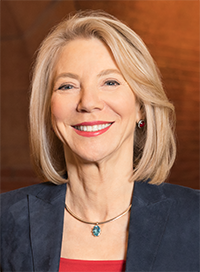 Welcome back from winter break and welcome to the new year and new decade! Around the world, people ushered in 2020 with celebrations that revived the “Roaring ’20s.” While turning up the jazz and dancing the Charleston until the ball dropped was great fun, Penn has its own Roaring ’20s to celebrate, and we’re not looking to the past.
Welcome back from winter break and welcome to the new year and new decade! Around the world, people ushered in 2020 with celebrations that revived the “Roaring ’20s.” While turning up the jazz and dancing the Charleston until the ball dropped was great fun, Penn has its own Roaring ’20s to celebrate, and we’re not looking to the past.
Together, our unparalleled Penn community looks to the future. It is a future increasingly shaped and made better by our unsurpassed faculty, students, staff, alumni and friends and all the good you do here and in the world. Building on a superb fall semester and the momentum of our Power of Penn campaign, here are just some of the ways Penn is roaring into the 2020s.
Penn’s reputation and reach for good in the world has never been greater and only continues to grow. US News and World Report named Penn #6 among the nation’s top universities, up two spots from previous years. At the same time, the Times Higher Education/Wall Street Journal named Penn #4 among all the nation’s colleges and universities, and #1 among all large universities.
Late last semester, Penn proudly announced not one but two Rhodes Scholars—the third year in a row that we claim this honor. We can now count nine Rhodes Scholars from Penn in the last five years alone. Our 2020 Rhodes Scholars are Ezzaty Binti Hasbullah (C’20) and Stephen Damianos (C’19). Ezzaty is passionate about social impact and has devoted significant time and energy to reducing education inequality in Malaysia, while also participating in and organizing numerous international volunteering initiatives. Stephen has dedicated himself to the cause of empowering refugees and is now studying the integration of refugees into formal labor markets and rights-based approaches to international development, with plans to attend law school.
Our 2020 Rhodes Scholars are joined by Penn’s latest Schwarzman and Marshall scholars. Erin Hartman (Nu’18), and Christina Steel (C’20), were named 2020 Marshall Scholars, and our latest Schwarzman Scholars are Andrew Howard (W’20), Malik Majeed (W’17), and GSE graduate student Zinan Chen. We could not be prouder of our 2020 Rhodes, Marshall and Schwarzman Scholars, with this year’s Fulbrights and President’s Engagement and Innovation Prize winners yet to come. They exemplify Penn’s unique power for good now and in the future.
Penn also boasts six new faculty inductees to the prestigious National Academy of Medicine (formerly called the Institute of Medicine). These exceptional faculty have made seminal contributions to the advancement of the medical sciences, health care and public health. I invite everyone to join me in congratulating Charles Abrams, Beverly Davidson, George Demiris, James Eberwine, Stephan Grupp and Guo-li Ming.
We are enormously proud as well of Penn’s three new faculty fellows of the American Association for the Advancement of Science, the world’s largest general scientific society. These extraordinary faculty have been honored for their scientifically and socially distinguished efforts. We congratulate Carolyn Gibson, Sampath Kannan and Ellen Puré.
These and countless other prestigious faculty honors join our latest MacArthur “genius” grant recipient, Emily Wilson, and Breakthrough Prize in Life Sciences winner, Virginia Lee, in rounding out a truly exceptional semester for Penn faculty achievement.
As we celebrate these and the many other accomplishments of the Penn community, I want to remind our seniors and their mentors that the deadline for both the President’s Engagement Prize and the President’s Innovation Prize is January 24. These Prizes not only publicly recognize and reward creative projects that promote the greater good. They also proclaim our most cherished values as a university: to educate and support our students for meaningful leadership and lifelong citizenship.
Each Prize bestows a generous living allowance for one year after graduation and up to $100,000 in project expenses. All full-time undergraduates who will graduate in May, August or December of this award year are eligible to apply. I encourage seniors with a great idea to apply, and I very much look forward to receiving them.
From our newest Rhodes Scholars to Penn’s latest interdisciplinary breakthroughs to student projects that change the world for the better, the brighter future we build here can be attributed directly to Penn’s people. I have only the highest praise for our outstanding faculty, students, staff, volunteer leadership and alumni. Especially as we gain incredible new ground with The Power of Penn Campaign, I am deeply grateful for everything you do to strengthen this Penn community that’s roaring into the future.
A bright new year at Penn—now that’s a reason to celebrate! Welcome back.

—Amy Gutmann, President
Gift from Michael and Peggy Moh to Create the Moh Foundation Applied Insights Lab
The Wharton School of the University of Pennsylvania announced a gift from 1992 Wharton undergraduate alumnus Michael Moh and his wife Peggy Moh through the Larry & Celia Moh Foundation (Almanac December 12, 1989) to establish the Moh Foundation Applied Insights Lab. Housed within Wharton People Analytics (WPA) and integral to the newly formed Analytics at Wharton, the lab will drive, develop and distribute practical applications of people analytics in collaboration with leading nonprofit and private organizations.
“I am deeply grateful for Michael and Peggy Moh’s commitment to create rich learning experiences and research opportunities in applied analytics,” said Wharton Dean Geoff Garrett. “Wharton students learn just as much by doing as in the classroom. With the WPA faculty and research team guiding their collaborations with dynamic organizations, the Moh Foundation Applied Insights Lab will enable future leaders to discover and share decision-making practices that truly enhance outcomes—from getting the right people into the right jobs to creating cultures of generosity at work.”
The Moh Foundation Applied Insights Lab is central to Wharton People Analytics’ (WPA) mission to advance the practice of evidence-based decision-making to help individuals and organizations thrive. The lab’s built-in research support will enable students and faculty to create knowledge that advances how organizations and leaders make decisions about people. To disseminate this research and ensure its impact, the lab will generate reports and digital media content to improve outcomes for the business community at large.
The lab will also provide new and expanded extracurricular opportunities for students. The gift will grow the Wharton Analytics Fellows program, which unites Wharton MBA students, undergraduates and faculty members in tackling complex business problems using the power of analytics. A nonprofit internship program focused on applied analytics will provide students with further opportunities to create data-driven solutions to real-world challenges and explore career pathways that best suit their talents, interest and potential.
“I have seen the tremendous value of investing in the way that we hire and nurture talent throughout my career in the finance and household goods sectors and believe deeply that this can apply to other industries, locally and globally,” said Mr. Moh. “Well-tested insights ultimately help people become more fulfilled and effective in their work while supporting the success of the organizations in which they serve. Wharton is well-positioned to bring all of this together.”
Mr. Moh served on Wharton’s Executive Board for Asia and on the Huntsman Program in International Studies & Business Advisory Board for many years. Mr. and Mrs. Moh generously support the Penn Wharton China Center and the Weingarten Learning Resources Center. Their gift to establish the Moh Foundation Applied Insights Lab also adds to their long-standing commitment to The Wharton Fund and is a significant contribution to Wharton’s More Than Ever fundraising and engagement campaign, which is part of the University-wide Power of Penn campaign. Mr. and Mrs. Moh are proud Penn parents of two daughters.
Ambika Singh: Manager, Penn Home Ownership Services
 Penn Business Services announces the appointment of Ambika Singh as the new Manager of Penn Home Ownership Services (PHOS) on November 25. Ms. Singh came to Penn from Santander Bank where she served as a mortgage development officer. She earned her bachelor’s degree in sociology at Princeton University.
Penn Business Services announces the appointment of Ambika Singh as the new Manager of Penn Home Ownership Services (PHOS) on November 25. Ms. Singh came to Penn from Santander Bank where she served as a mortgage development officer. She earned her bachelor’s degree in sociology at Princeton University.
PHOS offers eligible employees at Penn and the University of Pennsylvania Health System who are buying homes located within specific boundaries in the West Philadelphia area the opportunity to apply for financing for home purchases and renovations through its Forgivable Loan Program. The department also provides assistance to eligible employees through its Closing Cost Reduction Program. PHOS conducts a robust series of educational workshops throughout the year about the portfolio of PHOS’ programs along with a variety of other topics about purchasing a home.
“The extensive process of purchasing any type of residential use property can be daunting for many individuals,” said Marie Witt, vice president of business services. “The greatest challenges, in many instances, that deter potential buyers from purchasing a home are affordability and a lack of familiarity with the various aspects of the home buying process. The mission of PHOS is aimed at alleviating these obstacles through its offerings and we are pleased to have Ms. Singh lead these efforts.”
More information about PHOS is available at www.upenn.edu/homeownership
Call for Applications for Resident Faculty Within College Houses and Academic Services: January 29
The Offices of the Provost and the College Houses and Academic Services (CHAS) invite applications for service as a College House Fellow. This is a residentially-based position that carries a two-year term.
Faculty applicants from all 12 of Penn’s schools are welcome to apply. The most important qualification is an enthusiastic interest in mentoring and engaging undergraduate students within the residential setting. Members of the University’s faculty and full-time administrative staff in academic or student affairs who will be in their positions for at least two years are welcome to apply.
College House Fellows play a key role in connecting the houses to the larger academic community at Penn. Fellows are responsible for working with the faculty director to develop each college house as an educational resource that encourages intellectual inquiry, promotes academic programs in residence, fosters faculty and student interaction and builds strong, supportive House and CHAS communities. Specific responsibilities will differ from house to house, but the general time commitment is approximately 10 hours per week.
Although there are 25 fellow positions in the College House system, the number of openings seldom exceeds six. For these highly-sought-after positions, the selection process can be quite competitive. Applicants are reviewed by the undergraduate deans, the Office of College Houses and its faculty director, and the individual house community members, including the house faculty director, house dean and student residents.
Information about each college house, the fellow positions and application process may be found at www.collegehouses.upenn.edu Please explore the “join us” section of the website for postion information. If you have any questions please contact Dr. Lisa Lewis, faculty director of CHAS (lisaml@nursing.upenn.edu) or Marty Redman, senior director of College Houses and Academic Services (mredman@upenn.edu). The application deadline is January 29, 2020.
 Welcome back from winter break and welcome to the new year and new decade! Around the world, people ushered in 2020 with celebrations that revived the “Roaring ’20s.” While turning up the jazz and dancing the Charleston until the ball dropped was great fun, Penn has its own Roaring ’20s to celebrate, and we’re not looking to the past.
Welcome back from winter break and welcome to the new year and new decade! Around the world, people ushered in 2020 with celebrations that revived the “Roaring ’20s.” While turning up the jazz and dancing the Charleston until the ball dropped was great fun, Penn has its own Roaring ’20s to celebrate, and we’re not looking to the past. 

 Penn Business Services announces the appointment of Ambika Singh as the new Manager of Penn Home Ownership Services (PHOS) on November 25. Ms. Singh came to Penn from Santander Bank where she served as a mortgage development officer. She earned her bachelor’s degree in sociology at Princeton University.
Penn Business Services announces the appointment of Ambika Singh as the new Manager of Penn Home Ownership Services (PHOS) on November 25. Ms. Singh came to Penn from Santander Bank where she served as a mortgage development officer. She earned her bachelor’s degree in sociology at Princeton University.  José Miguel Oviedo, Trustee Professor of Latin American literature in the department of romance languages at the University of Pennsylvania, died December 19 at his home in Philadelphia. He was 85.
José Miguel Oviedo, Trustee Professor of Latin American literature in the department of romance languages at the University of Pennsylvania, died December 19 at his home in Philadelphia. He was 85. Gregory D. Palmer, former director, Information Systems and Computing, client services, campus initiatives for the University of Pennsylvania, died from cancer on November 12 at his home in Glen Mills, Pennsylvania. He was 69.
Gregory D. Palmer, former director, Information Systems and Computing, client services, campus initiatives for the University of Pennsylvania, died from cancer on November 12 at his home in Glen Mills, Pennsylvania. He was 69. Mary Ann South, former associate professor of pediatrics at Children’s Hospital of Pennsylvania who went on to be a member of the team of doctors who cared for David Vetter, known as “the boy in the bubble,” died November 7 in her New Mexico home. She was 86.
Mary Ann South, former associate professor of pediatrics at Children’s Hospital of Pennsylvania who went on to be a member of the team of doctors who cared for David Vetter, known as “the boy in the bubble,” died November 7 in her New Mexico home. She was 86.-resized_.jpg) R. Roberta Throne, former supervisor of the oral hygiene department at Penn’s School of Dental Medicine, died December 15 in York, Pennsylvania. She was 99.
R. Roberta Throne, former supervisor of the oral hygiene department at Penn’s School of Dental Medicine, died December 15 in York, Pennsylvania. She was 99. 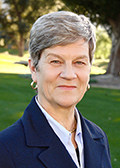 Cyberwar by Kathleen Hall Jamieson, Elizabeth Ware Packard Professor of Communication and director of the Annenberg Public Policy Center, has won the Roderick P. Hart Outstanding Book Award from the Political Communication Division of the National Communication Association (NCA).
Cyberwar by Kathleen Hall Jamieson, Elizabeth Ware Packard Professor of Communication and director of the Annenberg Public Policy Center, has won the Roderick P. Hart Outstanding Book Award from the Political Communication Division of the National Communication Association (NCA). David Leatherbarrow, professor of architecture at the University of Pennsylvania Stuart Weitzman School of Design, has been named as the 2020 recipient of the American Institute of Architects/Association of Collegiate Schools of Architecture (AIA/ACSA) Topaz Medallion for Excellence in Architectural Education.
David Leatherbarrow, professor of architecture at the University of Pennsylvania Stuart Weitzman School of Design, has been named as the 2020 recipient of the American Institute of Architects/Association of Collegiate Schools of Architecture (AIA/ACSA) Topaz Medallion for Excellence in Architectural Education.


 The Fourth Annual Penn Center for Innovation’s Celebration of Innovation was held last month at the Kislak Center for Special Collections, Rare Books and Manuscripts at Van Pelt Library. More than 150 Penn inventors and partners came together to celebrate Penn’s innovation achievements during fiscal year 2019. The keynote was given by Andrei Iancu, the Under Secretary of Commerce for Intellectual Property and Director of the US Patent and Trademark Office. He discussed the history of innovation at Penn, and the importance of inclusion and diversity. “We must make sure that more women and minorities are involved in the innovation ecosystem. Right now, only 12% of our patent awardees are women.” That said, during Fiscal Year 2019, 26% of Penn patent recipients were women.
The Fourth Annual Penn Center for Innovation’s Celebration of Innovation was held last month at the Kislak Center for Special Collections, Rare Books and Manuscripts at Van Pelt Library. More than 150 Penn inventors and partners came together to celebrate Penn’s innovation achievements during fiscal year 2019. The keynote was given by Andrei Iancu, the Under Secretary of Commerce for Intellectual Property and Director of the US Patent and Trademark Office. He discussed the history of innovation at Penn, and the importance of inclusion and diversity. “We must make sure that more women and minorities are involved in the innovation ecosystem. Right now, only 12% of our patent awardees are women.” That said, during Fiscal Year 2019, 26% of Penn patent recipients were women. 



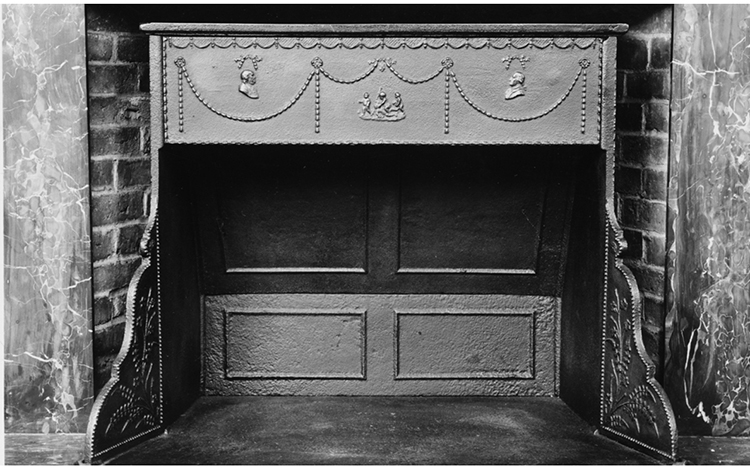






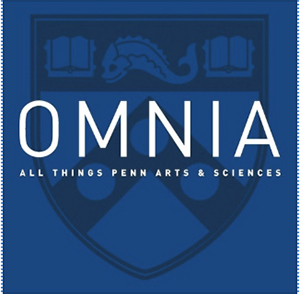



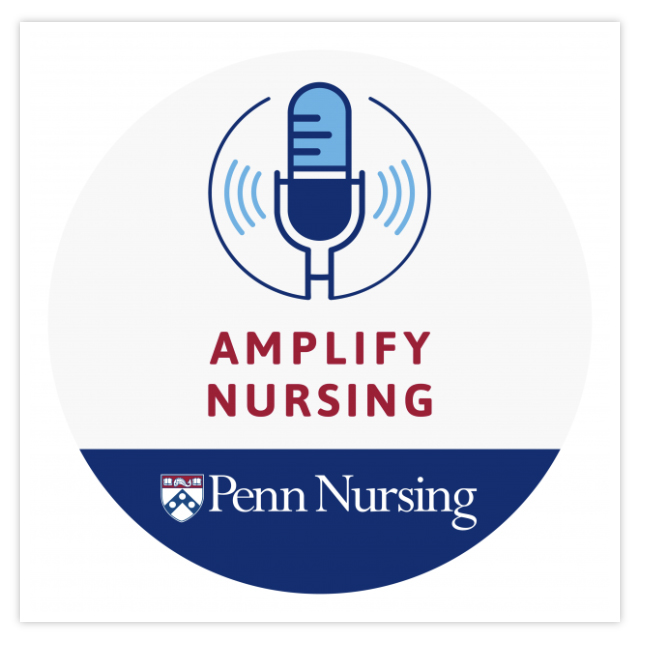


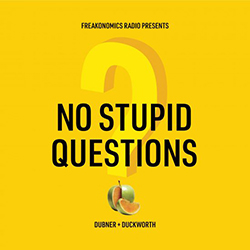










 Arthur Ross Gallery will display Frankenthaler On Paper January 16-March 29. Renowned for her “soak-stain”abstract paintings, Helen Frankenthaler (1928-2011) played a seminal role in both Abstract Expressionism and Color Field painting. The exhibit presents 10 paintings on paper and 17 prints that date from 1970 to 1993. These rarely seen works on paper reflect her painterly process and were considered by the artist equal to her large-scale paintings.
Arthur Ross Gallery will display Frankenthaler On Paper January 16-March 29. Renowned for her “soak-stain”abstract paintings, Helen Frankenthaler (1928-2011) played a seminal role in both Abstract Expressionism and Color Field painting. The exhibit presents 10 paintings on paper and 17 prints that date from 1970 to 1993. These rarely seen works on paper reflect her painterly process and were considered by the artist equal to her large-scale paintings.
